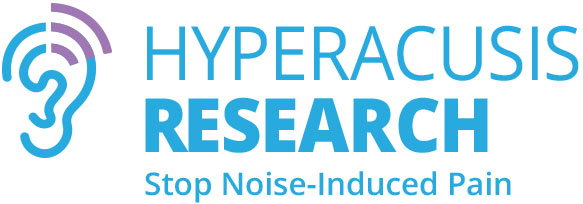Hyperacusis Research is pleased to announce a new research grant for 2024 funded by us, and awarded through our partner, Hearing Health Foundation. The recipient of the 2024 grant is Wei Sun, Ph.D., of the University at Buffalo.
The title of the new research project is “FOXG1 gene mutation-caused hyperacusis—a novel model to study hyperacusis.” Details about the work:
Hyperacusis is a common symptom in children with neurological disorders such as autism spectrum disorder, Williams syndrome, Rett syndrome, and FOXG1 syndrome (FS). The cause of hyperacusis in these neurological disorders has not been fully discovered. FOXG1 mutation is a recently defined, rare and devastating neurodevelopmental disorder. MRI studies show a spectrum of structural brain anomalies, including cortical atrophy, hypogenesis of the corpus callosum, and delayed myelination in children with FS. However, the impact of the FOXG1 mutation on the central auditory system and hyperacusis is largely unknown.
Children with FS show signs of hyperacusis, including becoming startled, upset, and even experiencing seizures from loud sounds. The mouse model of FOXG1 mutation provides a novel model to study neurological dysfunction in the central auditory system resulting in hyperacusis. In this project, we will use a mouse model developed by colleagues at University at Buffalo that replicates gene mutations in FS children to study hyperacusis. In our preliminary studies, we found that the mutant mice showed a lack of habituation in the startle tests and an aversive reaction to loud sounds in the open field test. We also found that the cortical neurons showed reduced neural activities and prolonged responses to sound stimuli, suggesting hypoexcitability and a lack of adaptation to sound stimuli.
The results point toward a novel neurological model of hyperacusis compared with the current “central gain” theory. Our findings will provide mechanistic insights into the role of the FOXG1 gene on hyperacusis and shed light on detecting potential therapeutic targets to alleviate hyperacusis caused by FS and other neurological disorders.
Long-term goal: To understand how the FOXG1 mutation affects central auditory function and hyperacusis. The results of this study will help us understand the role of the central auditory system in hyperacusis as well as design clinical studies to look at drug treatments and therapies for hyperacusis in children with FOXG1 syndrome and other neurological disorders.


Congratulations to Wei for discovering the link and winning this grant! Thank you to Hyperacussis Research for awarding it!
As the mother of a child with FOXG1 Syndrome, watching your child cry and scream at loud sounds and having to go through life hyper-vigilant about noises is more than just a little difficult.
Pre-diagnosis of FS, I was made to feel like I was neurotic, controlling, and a little crazy. When his seizures began, even a loud sneeze from my husband overnight would trigger a seizure. Luckily, seizure control meds have controlled any noise-related (and other) triggers.
Post-diagnosis of FS, my behavior to control his environment has been more “acceptable,” but we didn’t know he had a known susceptibility to pain due to auditory processing difficulties until we read about this grant and learned about hyperacusis!
Truly, thank you for working towards understanding the brain’s function in auditory processing in FS and other diseases like FS, in order to inform treatment development.
I’m looking forward to the results!